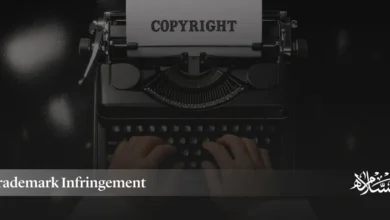Termination of the Smart Tower Lease
A primary court in Riyadh, specifically the Second Large Claims Division, recently ruled in favor of the Derayah REIT Fund, terminating an electronic lease agreement with Al Thimara Al Haditha Co., the tenant of Smart Tower in Riyadh. The termination was based on the company’s failure to pay the SAR 20 million annual rent.
The public disclosure of this ruling sheds light on a fundamental legal and financial truth: safeguarding cash flow requires respecting contractual principles before a crisis emerges — not after.
What Actually Happened?
Derayah REIT acquired a prime office tower in Riyadh’s Olaya District from the tenant itself. The tower represented approximately 17% of the fund’s total portfolio, and was leased for SAR 20 million annually over a 10-year term.
However, the tenant defaulted on rent payments for two consecutive years and even filed a lawsuit to annul the property’s sale. The court dismissed the tenant’s claims and subsequently issued a ruling to terminate the lease.
Analyzing the Fund’s Crisis Management
In many cases, contract termination is seen as a last resort — and it appears the fund delayed invoking this right, possibly in hopes of a negotiated resolution. Unfortunately, this delay allowed the debt to balloon to SAR 40 million.
Had the negotiation window been shorter, action could have been taken before the lease renewed for another year. Here lies the critical role of legal counsel in anticipating litigation timelines — in this case, seven months, which is considered remarkably efficient — and advising fund managers accordingly.
Why Was Automatic Termination Not Enforced After the First Breach?
This remains unclear. The lawsuit focused on lease termination, whereas many standard lease agreements grant the right of termination to the aggrieved party in the event of rent default. In this case, it might have been more effective to file a declaration of termination rather than requesting it via lawsuit.
Had the termination occurred earlier, the fund might have been entitled to the contractually agreed rent, rather than settling for market-based rent (Ejrat Al-Mithl) — which could be significantly lower.
Recovery After Termination: Harder Than You Think
With a SAR 40 million debt and the tenant being a limited liability company, termination is far from a full victory. Recovery becomes the real challenge — especially if the company lacks the liquidity to settle.
This underscores the crucial importance of attaching enforceable guarantees to lease agreements (e.g., mortgage, surety, or financial disclosures). There’s no indication that such mechanisms were activated in this case — if they existed at all.
The key takeaway? Winning the lawsuit isn’t enough — you must ensure you can actually collect on the judgment.
The Attempt to Terminate the Property Sale
The tenant also lost a separate lawsuit attempting to annul the sale of the property. While the exact motives behind this suit remain unclear, asset sales are typically backed by full due diligence and valuation reports.
Moreover, the tenant had paid rent and operated the building for years as a former owner-turned-lessee, making the claim highly questionable.
It would be interesting to learn the rationale behind this legal maneuver.
In Conclusion
This was not just a dispute over unpaid rent — it was a test of strategic thinking in managing high-stakes real estate conflicts in an institutional investment environment.
Those who read between the lines will see that legal battles are not won in court alone, but also behind closed doors — in boardrooms, between legal advisors, risk managers, and portfolio directors.
The real question isn’t “Who was right?” but rather:
“Who thought ahead before the crisis hit?”
“Who drafted their contract with the future in mind?”


